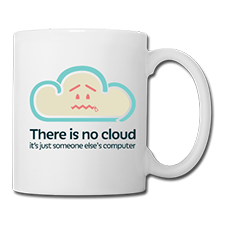Wandering
in
Wondering
About
Resume
Posts
Gallery
Cars
Cooking
Topics
Tags
Twitter
Instagram
Flickr
LinkedIn
Hacker News
GitHub
Keybase
© 2021
Licensed CC:By-NC-SA
Built with
Hugo
Theme
Blackburn
Welcome to the Cloud: Intro to Linux System Operations
class: center, middle # Welcome to the Cloud: ## Introduction to Linux System Operations #### By: Tyler Duzan ??? Expected presentation run-time is 30 minutes --- # Who Am I? * Early start with computing * Various technical roles across industries over the last 10+ years * Learned security through direct practice * Previously at Rackspace - Senior role in operations as part of Rackspace Cloud - Global Technical Product Owner for Linux Operating Systems - Internal subject matter expert (SME) on identity management and security * Currently at Eligible Inc. as a Senior Technical Operations Engineer - Eligible is a healthcare technology startup which means our focus is heavily on information security and compliance ??? Talk it out, make it brief. --- # Talk Outline 1. Talk Series Format/Setup 2. What is the Cloud Anyway? 3. What is Linux? 4. Why Linux? 5. Getting Started with Vagrant and VirtualBox 6. Demo Time 7. Conclusion / Things to Explore ##### Please Hold Questions Until The End! --- # Talk Series Format/Setup * I plan to have multiple parts to this topic in a series of talks * All tools I will present during this series will be compatible with Windows, OS X, and Linux * To follow along it is required to have a laptop with Vagrant and VirtualBox installed (both free) ### If you didn't previously setup Vagrant and VirtualBox do so now please --- # What is the Cloud Anyway? * The Cloud consists of: - Agility - Elasticity - Multi-Tenancy - Location Independence - Automatable Controls * Types of Cloud Services - IaaS: Infrastructure as a Service * The basic building blocks of computing at scale like servers, storage, and networking - PaaS: Platform as a Service * The services built on top of infrastructure that let you do useful things, such as - Identity/Access Management - Auto-Scaling - Application Provisioning --- # What is the Cloud Anyway? * Types of Cloud Services, cont. - SaaS: Software as a Service * Typically built on top of IaaS or PaaS * The consumer (or business) facing product that is being sold and used. * Examples: - GMail - Zendesk - Github - Slack - NetSuite - SalesForce * Follows the "Service Layer Model" * The snarky answer is the Cloud is just somebody else's computer --- # What is the Cloud Anyway?   --- # What is Linux? * Project began in 1991 * Originally created by Linus Torvalds, a Finnish man. * Currently the largest open source free software project in existence with more than 9000 developers and over 500 companies involved over its lifetime * Based off the POSIX standards which governed the various commercial UNIX operating systems during the 80s and 90s. * Especially well suited for being run on servers * Because it's free and open source, anyone can use it and modify it. * Linux itself is just the OS kernel and must be combined with other software to be a functioning operating system. * Functioning OSes based on Linux are called distros or distributions. Examples: - Ubuntu - Debian - Red Hat Enterprise Linux (RHEL) - CentOS - Gentoo - Arch Linux --- # Why Linux? * Almost all configuration of the OS itself and common software packages is done with text files which are easy to manipulate via automation tools * The kernel itself is very fully featured so allows you to build a functional system in a small amount of space/overhead * Has exceptional TCP/IP networking capabilities making it especially well suited for building infrastructure components * Has strong security when implemented properly * Is extremely reliable, allowing almost indefinite uptime barring unusual circumstances * Is built around one of the most rigorously engineered standards for a server-focused operating system, POSIX * Has been around long enough to be considered mature software --- # Getting Started with Vagrant and VirtualBox * VirtualBox is a free virtualization platform that lets you run virtual machines - Virtual machines are conceptually smaller computers running inside your computer with their own operating system installed * Vagrant is a developer-focused wrapper for VirtualBox that makes it simple to manage and automate the building of virtual machines * `vagrant init debian/jessie64` or `vagrant init centos/7` * `vagrant up` * `vagrant ssh` ##### See [https://www.vagrantup.com/docs/getting-started/index.html](https://www.vagrantup.com/docs/getting-started/index.html) for more information. --- class: middle, center # Demo Time! --- # Conclusion * The Cloud is just a series of abstractions layered on top of each other to make using complex systems easier * Anyone can make use of the Cloud for everything from simple websites to very complex systems * Linux is about flexibility and freedom * Systems Operations is about reliability, security, and repeatability through automation # Things to Explore * Configuration Management Tools: *Chef*, Puppet, Salt, Ansible * Web Servers: *Nginx*, *Caddy*, Apache, lighttpd * Email MTAs: *Postfix*, qmail, sendmail, Exim, OpenSMTPd * Email Post Office Services: *Dovecot*, Courier * VPN Services: *OpenVPN*, StrongSWAN, SoftEther, Tinc * Database Servers: *PostgreSQL*, MySQL/MariaDB/*Percona*, MongoDB, Cassandra * Other Services: Asterisk, OwnCloud, GitLab, Ampache/Koel/CherryMusic, Plex --- class: center, middle # Any Questions?